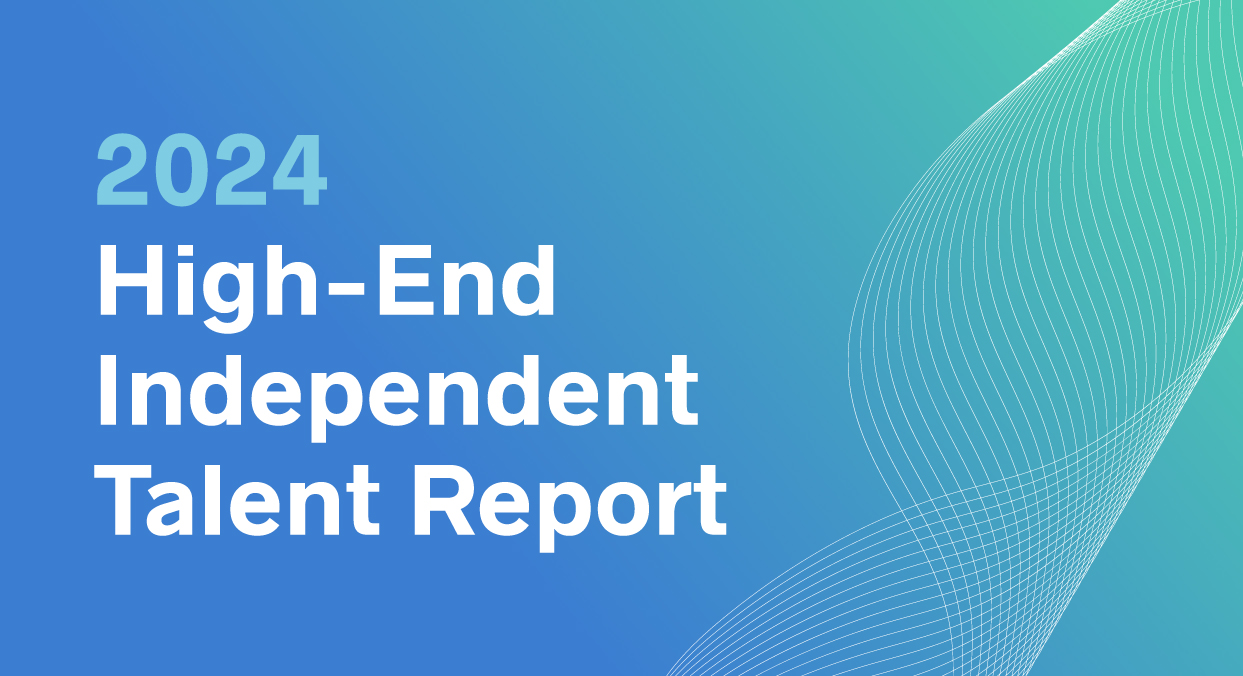The C-suite landscape has changed dramatically in recent years, with thousands of CEOs and long-tenured executives either retiring or transitioning to non-traditional roles like independent consulting. Meanwhile, the positions they’ve left behind continue to grow in complexity and scope.
It’s no longer enough for corporate officers to focus on a specific area of functional expertise, such as financial planning or talent acquisition. Today’s leaders also have to be strategists, salespeople, technology experts, regulatory specialists, and more—all while moving at breakneck speed and keeping both the forest and the trees within view.
With the C-suite version of the Great Resignation still underway, it may not be a surprise that many of those who have been hired or promoted to fill these ever-growing shoes are first-time executives. According to a 2023 analysis by Heidrick & Struggles, “72 percent of current Fortune 100 CFOs were appointed to their current roles as first-time CFOs, with no prior CFO experience.”
Though there’s something to be said for the enthusiasm of fresh-faced talent, there’s also the reality of their roles’ ongoing expansion to contend with. Leveling up to the C-suite is a daunting transition in and of itself, let alone when expectations are always evolving. Even for the executive-level unicorns out there, the sheer number of plates they’ve got spinning and the amount of work on each of those plates is a lot to manage.
What support do leaders need right now?
Organizations often underestimate how critical the first few months are for an incoming executive. The 90-Day Leadership Playbook can complement your onboarding efforts by helping the leader define priorities, identify key stakeholders, and pace early decisions so support systems stay aligned. Used alongside your internal resources, it gives both the executive and the organization a shared framework for a smooth, confident transition.
To help new leaders succeed, many top companies are tapping independent talent for executive mentorship and support. A cost-effective alternative to traditional consulting firms, high-end independent consultants have CVs rich in executive experience and subject matter expertise, allowing them to step in quickly and assist wherever they’re needed.
They also know how to support C-suite executives in their new roles by providing supplemental expertise for emerging trends such as AI, guidance on ESG compliance, and much-needed capacity for critical, time-sensitive projects such as IPOs or acquisitions. Whether it’s their first time in a leadership role or they’ve worn the executive mantle for years, corporate officers don’t need to have all the answers—they just need to have the right people in place.
These flexible, on-demand engagements can be broad and strategic or short and execution-focused. Below, we’ll explore three ways in which independent talent can boost the effectiveness of a new executive.
How independent talent help new leaders succeed
1. Providing key insights to help cut through complexity
New corporate officers benefit greatly from the establishment of a support network that can provide expert guidance and advice. From shaping strategic frameworks and refining reporting relationships to identifying new opportunities and policy gaps, an experienced mentor can offer valuable insights and illuminate potential paths forward.
Though its advantages are evident, networking can also be a challenge—particularly for those who have never held an executive position before. Many of these advisory relationships develop mutually and organically over time, but at the outset, bringing in an independent consultant can give new corporate officers a stronger foundation upon which to build.
A significant number of independent consultants today are the very same C-suite executives who recently left their corporate gigs to strike out on their own. They possess a wealth of leadership experience and operational expertise, and their mentorship can be the difference between new executive effectiveness and a swift exit.
Case study: Mentorship as a springboard for success
In one example, a privately held, mid-market professional services company wanted to ensure their new COO was properly set up for success. The new executive candidate was promoted from within and had been identified as having high potential for the COO role. The company had already seen two COOs exit in two years, so they sought to avoid previous mistakes by providing increased support to the “step up” executive candidate.
They reached out to BTG for an independent consultant with COO experience who could advise the new COO and help develop a high-functioning operations unit. The organization involved the candidate in the process to ensure the selected consultant meshed well with their personality and working style. It was also important that the consultant had technical and/or financial expertise, as part of the new COO’s duties would be to streamline processes between the IT and Finance teams.
BTG delivered an experienced services company COO to serve as a temporary, part-time advisor to the first-time COO candidate. Together they focused on building key infrastructure for the organization’s operations, including frameworks for opportunity identification and governance policies and processes. The independent advisor also helped redesign reporting relationships among the C-suite and then coached the candidate on how best to step into the re-envisioned role.
2. Building flexible, high-performing teams to help free up capacity
Regardless of experience level, one thing remains true for all executives: delegation is key to staying out of the weeds. This becomes even more critical for first-time executives, as they may feel driven to prove their aptitude, and acknowledging knowledge gaps can feel risky.
Bringing on additional, skilled on-demand talent can help round out the executive’s team and handle project delivery so that the corporate officer can focus on the big picture. After all, it’s not necessary for a CFO to know all of the technical aspects of a cybersecurity transformation—they just need to understand the technologies’ impact and potential.
Similarly, independent talent can help minimize distractions and maintain momentum by temporarily taking high-priority projects off of the executive’s ever-growing to-do list. This way, new corporate officers can better focus on strategic initiatives and other immediate needs, then return to the projects when they have the capacity to do so.
Case study: Increasing executive bandwidth
In one example involving a critical—but short-term—initiative, a fast-growing public biotech company had important work to do around compensation and benefits. The HR leadership team knew that time was of the essence, but pressing matters in the organization’s people functions repeatedly drew their attention away from the workstream.
They could have brought in a permanent hire, but given the temporary nature of the work, it made more sense to source independent talent with a skillset aligned to the company’s specific needs. This approach would also be more cost-effective, and it would allow the CHRO to retain control and oversight over the project.
BTG matched the project with a seasoned HR professional, placing her in a special project role that would last three months—long enough to complete critical tasks and provide much-needed bandwidth while freeing up capacity for the CHRO.
Case studies: Filling executive skills gaps
In other instances, BTG’s independent experts have provided interim support to global executives while their organizations built out standalone functions. On-demand talent has also proven valuable in situations where sitting executives lacked the experience to take the company through specific landmark events, such as an IPO or Series B fundraising.
In the latter case, the former private equity partner and finance executive that BTG brought in helped a biotech company close Series B well beyond its fundraising goals while also developing a financial strategy that made it possible to create a permanent CFO position—essentially preparing the organization to go public.
3. Delivering subject matter expertise to support emerging needs
It’s essential for new executives to fully understand the ways in which emerging technology can and will affect the overall business. Artificial intelligence and environment, social, and corporate governance (ESG) are the hot topics right now, and the speed at which they are evolving can make it difficult for thinly stretched corporate officers to keep up. Plus, the ever-increasing complexity of these trends makes specialized expertise a must.
Carbon compliance and reporting are of particular concern, as greenwashing has corporate watchdogs on high alert. The guardrails for AI, on the other hand, are still being put in place—and as these regulations evolve, it’ll be important to already have a strategy in place and a compliance framework ready.
Many top companies are bringing in on-demand talent to help identify opportunities and shape strategies for digital transformation, AI implementation, and ESG reporting and compliance. In addition to their strategic chops and specific subject matter expertise, these independent consultants also possess the operational knowledge necessary to effectively implement new technologies and data capabilities across functions.
Case study: Understanding AI capabilities
When a multinational technology corporation wanted to assess the market landscape with regard to AI use in startups, they knew they’d need to bring in an expert from outside the company as internal leaders lacked the necessary knowledge on this cutting edge technology. They specifically wanted to compare competitive large-scale AI models, with a focus on the models’ ability to generate and understand language, images, and videos.
BTG provided an independent consultant with extensive expertise in growth strategy, innovation, marketing, and business development. The consultant’s resulting landscape analysis and research helped the company identify and better understand the leaders in the space, as well as their competitive embedded technology products.
Case studies: From sustainability efforts to ESG communications
Recycling is a core part of many sustainability strategies, but when the baby care division at a global consumer goods company wanted to explore a new approach, leaders found that they lacked the expertise needed to effectively assess potential options.
BTG connected them with a former Bain consultant who specializes in consumer goods. The independent consultant drew on his experience with improving the sustainability of end-to-end product lifecycles to assess the proposed program’s viability. After evaluating the competitive landscape and potential market size, he dove into a detailed analysis of operations and supply chain cost—including estimated reclamation revenue—to develop a proposal that the team could draw on to forge a more sustainable path forward.
In another case, a strategic advisory firm needed to develop communications and ESG strategies for a mining company based in the Middle East, but they didn’t have the in-house transformation and operational support to make it happen.
BTG brought in a senior strategy consultant and former mining executive with global experience to support their multifaceted initiative. In addition to conducting a landscape assessment and competitor benchmarking, the on-demand consultant also devised a strategic plan to improve the company’s global positioning and better communicate their ESG efforts to international audiences.
If it hasn’t happened already, it’s likely that at some point in the near future someone in your organization will ascend to the C-suite without prior experience in a corporate officer role. By providing them with adequate support and guidance, you can set them up for early success and help accelerate your organization’s own growth. Tapping independent talent for project-specific needs, capacity expansion, subject matter expertise, or strategic guidance can help bridge the divide and keep your company moving forward.
Ready now? Let’s get started.
Get the Skills You Need
Thousands of independent consultants, subject matter experts, project managers, and interim executives are ready to help address your biggest business opportunities.
About the Author
More Content by Emily Slayton



















![[Podcast] Bloomberg Businessweek Covers the Latest On-Demand Talent Trends amid Economic Uncertainty](https://content.cdntwrk.com/mediaproxy?url=https%3A%2F%2Fbusinesstalentgroup.com%2Fwp-content%2Fuploads%2F2023%2F04%2FBloomberg-2023-HEITR-thumbnail.jpg&size=1&version=1713294640&sig=ab0b4ac8aa5da3ee45099eec36d1f0af&default=)